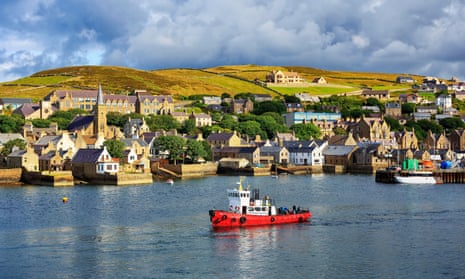Orkney could leave the UK to become a self-governing territory of Norway after its council opted to explore “alternative forms of governance”.
The archipelago off the north coast of Scotland will also consider changing its legal status within Britain as it seeks to provide more economic opportunities.
A motion has been put forward by the Orkney Islands council leader, James Stockan, to explore its “Nordic connections”, as well as looking at the governance structures of crown dependencies such as Guernsey, Jersey and the Isle of Man.
Orkney was under Norwegian and Danish control until 1472, when the islands were given to Scotland as security for Margaret of Denmark’s dowry on her marriage to King James III of Scotland.
Stockan told BBC News: “We were part of the Norse kingdom for much longer than we were part of the United Kingdom.
“On the street in Orkney, people come up and say to me: when are we going to pay back the dowry? When are we going back to Norway? There is a huge affinity and a huge deep cultural relationship there. This is exactly the moment to explore what is possible.”
He said Orkney had been “failed dreadfully” by governments in Edinburgh and London, with funding less per capita than is received by Shetland and the Western Isles.
The report due to go before the council also references the Faroe Isles, a self-governing territory of Denmark in the North Sea.
The Liberal Democrat MSP for Orkney, Liam McArthur, said there were dangers in “putting up barriers” but said he supported empowering island communities.
“I am due to meet local councillors on Monday and will be interested to learn more about what is envisaged,” he said. “There were similar proposals considered by Orkney Islands council around the time of the last independence referendum and I am keen to understand how these would differ.
“Locally, I think islanders will also want to be reassured that this exercise won’t result in council resources being taken away from the day-to-day running of services at a time when these are under real pressure.”
Although the motion does not commit the council to any of the options, the officials’ report says any constitutional change would probably require a combination of petitions, referendums and legislation at Holyrood and Westminster.
The motion is to be discussed by the council on Tuesday.
2023-07-02 14:31:52
Source from www.theguardian.com

















